Cat faeces can have strange colours every now and then, but if your cat’s poop is green it is right to be concerned.
This is because it is likely that your cat has developed small intestinal diarrhoea, particularly if their green poop also contains undigested kibble or food remnants.
Contents
Is Green Cat Poop Normal?
No.
Green cat poop is never a good sign, whether your cat is otherwise completely healthy or not.
The biggest challenge when it comes to examining your pet’s faeces is when they also go outdoors.
It is actually not uncommon for cats to prefer ‘going to the bathroom’ in nature, especially if they feel the need to mark their territories so as to establish dominance in a specific area.
However, during the colder seasons, most cats will use the litter box in their homes. And that’s the perfect moment for you to take a good look at how your pet’s waste is, colour and consistency-wise.
Since it can be a symptom of disease, if you see that your cat is passing green stools, you should take them to the veterinary clinic.
If your cat’s poop is green we recommend you speak with a vet ASAP.
JustAnswer allows you to talk in real-time to veterinary experts for a small fee.
What To Do If My Cats Poop Is Green
It depends on what other clinical manifestations your cat has.
If you do not see any particular changes in your pet’s behaviour other than the green faeces themselves, it could be a sign that they might have had too much cat grass or have had too many nibbles of greens.
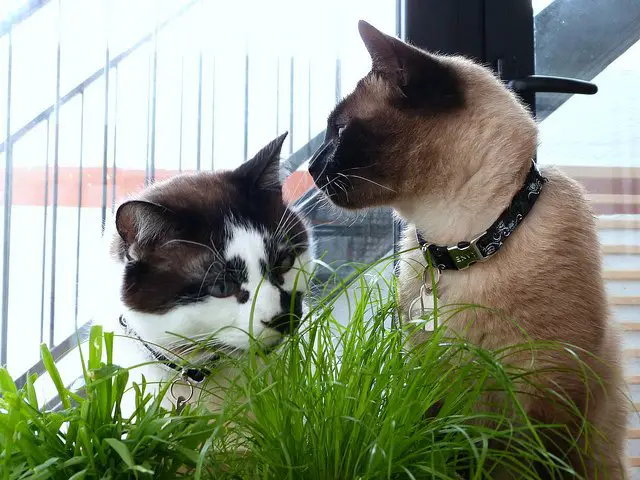
While most cats are not going to show any interest in fresh fruit and vegetables, some will like to have them as snacks just because of their crunch.
Plants that are especially rich in chlorophyll such as spinach and other leafy greens will naturally make your cat’s poop slightly green, without causing any other symptoms.
But just to be on the safe side of things, particularly if your cat has several chronic diseases (which can be the case if you are caring for a senior), take them to the vet to find out what’s wrong.
What Causes Green Cat Poop?
There are a number of different factors that could cause your cat’s poop to turn green, these include:
1. Diet
We’ve already mentioned that what your cat eats can largely influence the appearance of their faeces, so we will not add too much detail in this sense.
If you regularly take your cat to the animal hospital for check-ups and vaccinations and they are considered a healthy adult, just watch your cat over a period of 24 to 48 hours.
If they continue to pass green stools and there are other signs that are noticeable, such as bloating, gas, abdominal pain, or anything else in this vein, get veterinary assistance as soon as possible.
Time is of the essence when it comes to treating any health problems in cats, and that’s because they more sensitive compared to other species.
Their bodies can’t handle pathogens and other complications as well as other animals.
2. Bile or hepatic issues
While green bile present in your cat’s stools isn’t necessarily a sign of an infection, it could be a symptom that they have developed some type of gastrointestinal disease, incidentally
Bile is green in itself, and it usually deteriorates and changes colour inside your pet’s body as food gets digested.
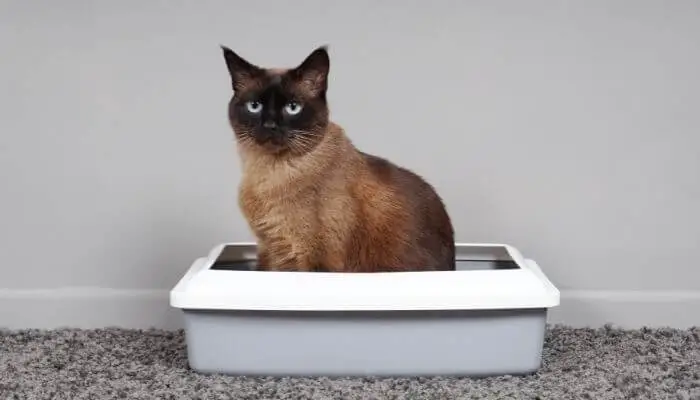
When bile doesn’t have enough time for it to change colour, your cat’s poop will be green as a result of that.
But that also means that your cat’s body is not absorbing the nutrients from their food properly, so they could subsequently develop emaciation.
If you know that your cat’s blood work isn’t great and there are changes in their liver and bile duct or gallbladder enzymes (AST, ALT, alkaline phosphatase, or GGT), this could be the reason their faeces are green, incidentally, the same issues can also turn your cat’s poop yellow or even grey.
3. Infections
Both parasitic and bacterial diseases can cause green cat poop.
Salmonella is a common culprit, so if your pet gets food poisoning and they develop digestive complications, their poop could turn green because of that.
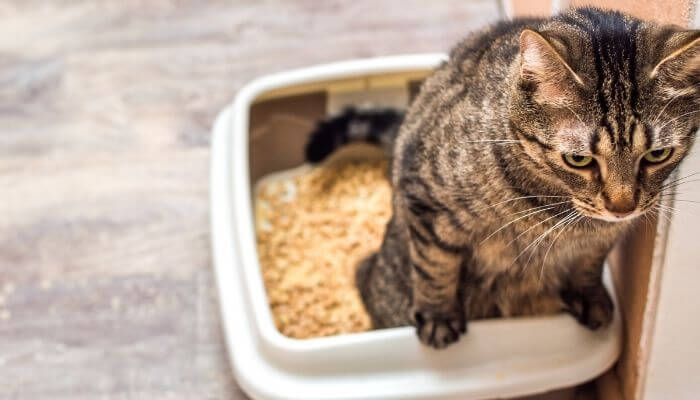
Giardia infestations can also cause significant modifications of the normal faeces colour, so make sure that your pet is regularly given dewormers.
While green poop isn’t necessarily a clear sign of this condition, your cat might also have developed coccidiosis as a result of being exposed to contaminated animals.
If that happens, the poop will also be coated in mucus besides having a somewhat strange smell.
In some cases, infections could also cause your cat’s poop to turn black.
4. Medications
Whether we are discussing antibiotics or any other type of drugs, you should know that most synthetic medications come with a share of side effects.
The way they are absorbed and processed by your pet’s body can influence the appearance of their poop.
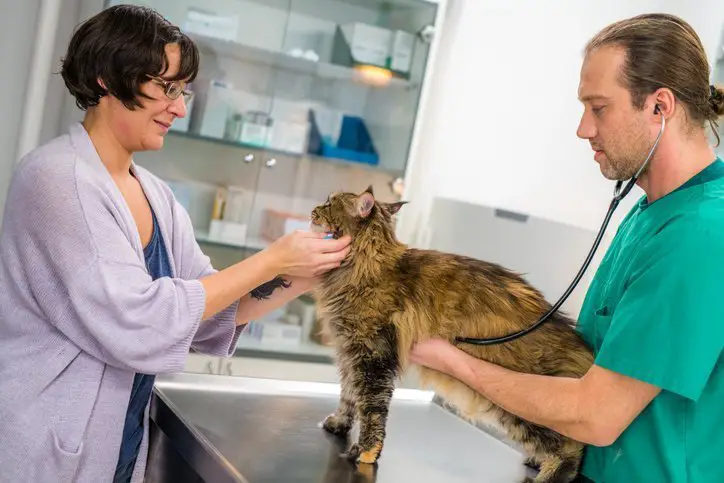
Even vitamins can largely influence the colour of your cat’s faeces, but so can anti-inflammatory medications or specific antibiotics administered for treating anaerobic bacteria or certain types of parasites.
Give your veterinarian a call to ask them whether this is completely normal or if you should take your cat to the clinic.
5. Digestive issues
Although the heading sounds a bit broad, the truth is that green faeces can also be caused by small intestinal diarrhoea.
One of the warning signs of this is ‘ inappropriate elimination’, which means that your cat is going to the toilet in places outside of their litter box for no apparent reason.
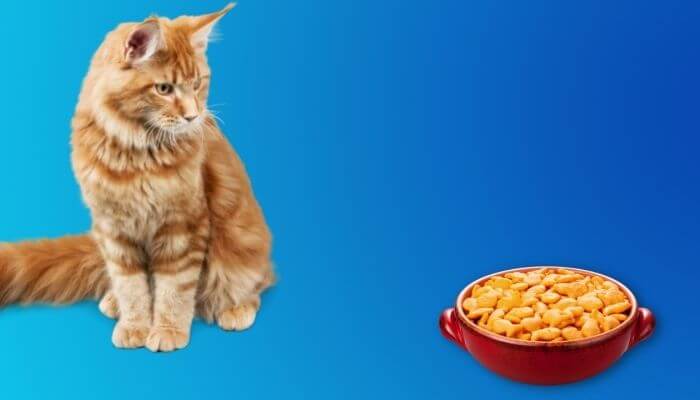
Pets that have a history of gastrointestinal health issues, as well as those that were diagnosed with IBS or IBD can experience this complication every now and then.
Making sure that your pet is given the right diet, one that contains a good amount of fibre so as to help them in retaining the nutrients in their body for as long as possible, is a good way of going about things in this case.
However, it’s important to be aware that green poop can also sometimes occur simply because your cat has eaten something with green pigment in it, such as grass.
A green colour is not definitely indicative of any kind of intestinal issue. It be due to the pigment within a product the cat has eaten, if the pigment is not digested then it will be defecated (such as grass).
Nick Garside | Veterinary Advisor at VioVet.
Cat Poop Green & Smelly Meaning
Smelly poop is never pleasant, but it could also be a sign of a medical condition.
While the colour itself is a bit concerning, certain smells, particularly the very potent and bad ones, should convince you to take your cat to the animal hospital.
And the reason we’re advising you to do so is that in most cases, a dangerous pathogen is involved in the process.
If the consistency of the poop is also watery, going to the vet clinic quickly is even more important — as your cat can easily become dehydrated and lose their life in a matter of days.
Green Cat Poop With Blood
Blood is never a good sign, whether you might see it in your cat’s vomit, the material that they might have coughed up, their urine, or their faeces.
Blood is usually a sign that a severe lesion has occurred somewhere in your cat’s gastrointestinal tract.
Whether it is the consequence of massive parasitic infestations where the worms actually damaged your pet’s intestinal lining or it happened because your cat has been having diarrhoea for several days, you should get help ASAP.
Not only is your pet losing precious fluids through their diarrheic stools, but they’re also losing blood, so you should be quite worried.
Wet Green Cat Poop
If you have been a cat owner for a while now, you probably know that the faeces of this species are rather dry.
They are so much so that they can turn into tiny rocks when being exposed to air for a period of several days.
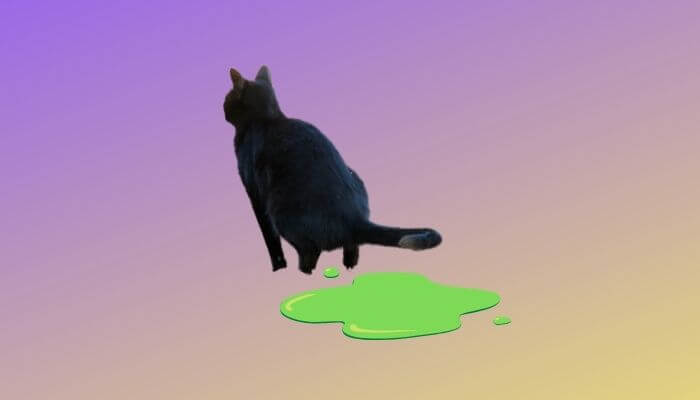
Not only should cat excrement be brown or even dark brown, but it should also be firm.
Light-coloured stools, along with green ones, should be a very occasional occurrence. Your cat should not have wet green poop day in and day out.
If the poop is covered in a massive amount of mucus and its firmness isn’t quite what it used to be, chances are that your cat has developed some sort of intestinal health problem.
Wet cat green poop can also be a symptom of significant changes in your pet’s diet, but it could also be a sign that there is a polyp on the animal’s intestinal lining or that they have worms.
If you can, the best way of going about things would be for you to collect some of your cat’s faeces and take them to the veterinary hospital when you take your pet in for a physical examination anyway.
Otherwise, there is no way of the veterinarian performing a faecal exam.
Besides, since cats are always at ease when they are at home, especially when compared to how they feel when being taken to the vet, the best place to collect their poop would be their own litter box.
Summary
Even though green cat poop doesn’t have to mean that your cat has a health issue, prevention is worth a pound of cure.
Finding out exactly what’s wrong with your pet as early as possible will make it easier for your vet to treat any disease.
It’s also one of the reasons why you should have pet insurance, so that if something happens and your cat needs veterinary assistance and maybe has to be hospitalised for a couple of days, you will not be forced to go into debt.

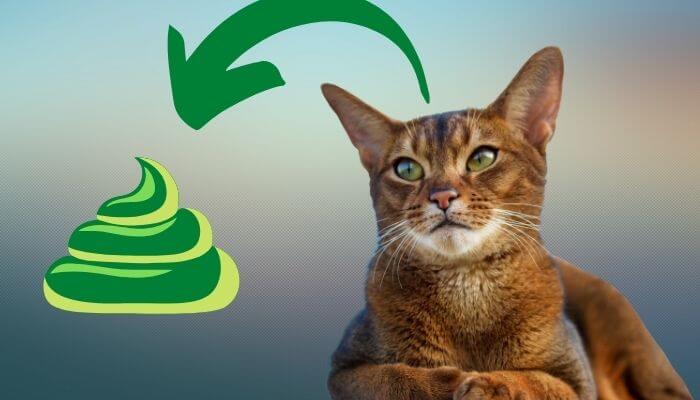
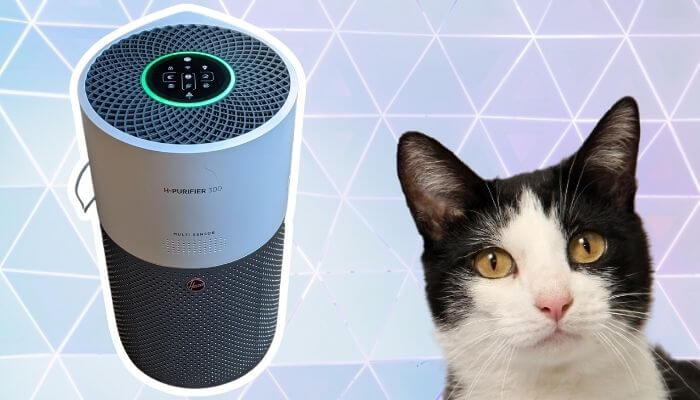
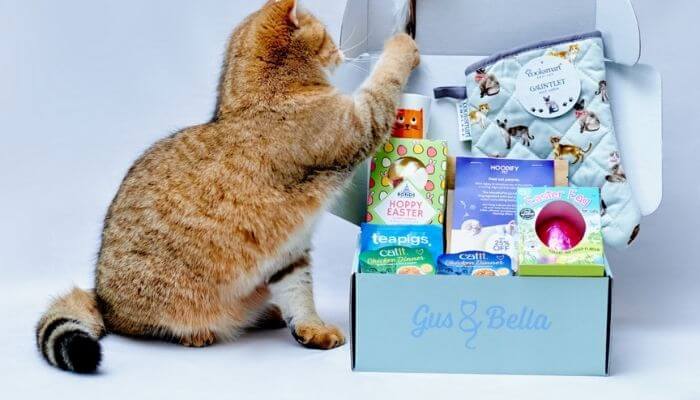
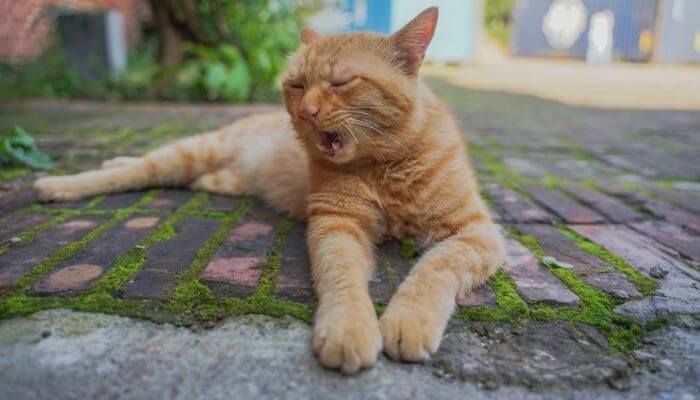
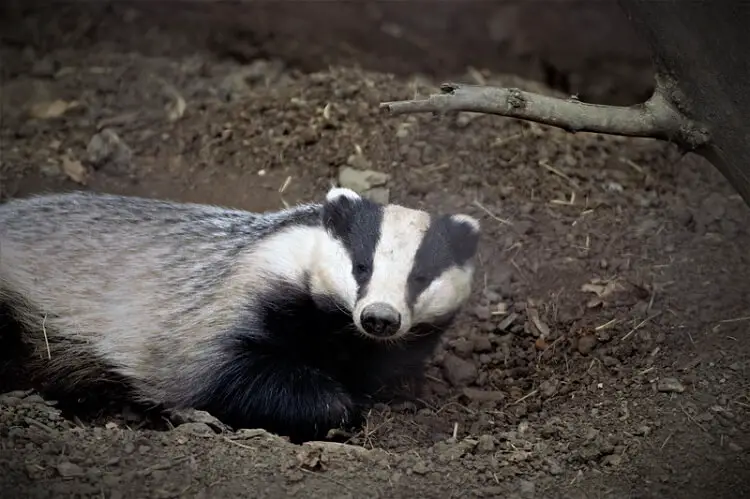


Leave a Comment